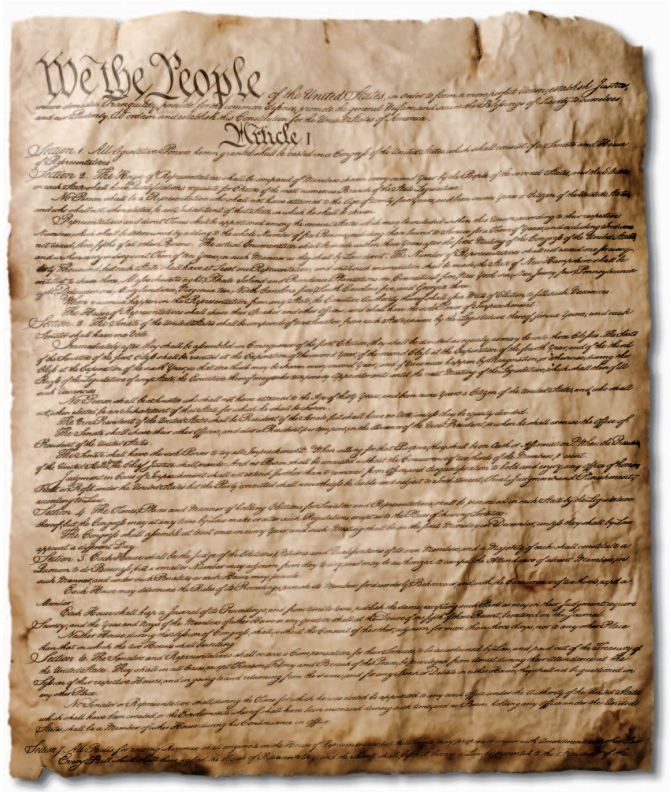Constitutional Law Center Launched at Stanford Law School

THE STANFORD CONSTITUTIONAL LAW CENTER OFFICIALLY OPENS ITS DOORS THIS FALL WITH KATHLEEN M. SULLIVAN, FORMER DEAN OF THE LAW SCHOOL, AT THE HELM AS ITS INAUGURAL DIRECTOR. Sullivan, the Stanley Morrison Professor of Law and one of the nation’s leading constitutional scholars, will be joined by Derek Shaffer ’00, who returns to Stanford Law School as the center’s executive director. Sullivan met Shaffer when he was a student in her Constitutional Law II class and describes him as a “rising legal superstar.”
The center will build upon the law school’s strong tradition of constitutional law scholarship through a combination of academic conferences, public lectures, policy research projects, and pro bono litigation efforts.
“With the nation facing new challenges in maintaining its age-old civil liberties and checks and balances in the face of terrorism and technological change, there could hardly be a better time to launch the Constitutional Law Center,” said Sullivan.
Working with constitutional law faculty and Stanford Law School’s clinical programs, the center aims to build upon the legacy of such Stanford constitutional giants as former dean Paul Brest and the late Gerald Gunther and John Hart Ely to explore and improve public understanding of the most pressing constitutional issues of our time. Its primary focus will be on separation of powers, voting and democracy, freedom of speech and press, and the right of privacy including the privacy of personal data in a digital world. At the same time, the center will also consider the United States Constitution in a global framework, looking to relevant comparisons of constitutional practices in other nations.
Under the active supervision of Sullivan and Shaffer, the center will involve law students in its research and litigation projects through a constitutional workshop; this workshop will enable students to contribute to the center’s activities by researching and analyzing relevant constitutional issues and supporting its litigation efforts. To the extent that constitutional cases in which the center is involved may reach the Supreme Court, the center will collaborate with the law school’s Supreme Court Litigation Clinic—with one adding its expertise of the subject matter to the other’s expertise of the forum.
Sullivan said she is looking forward to collaborating with Shaffer, whom she handpicked as the center’s inaugural executive director, noting that it was always her hope that “the first person in this role would be one of our own alumni.” Sullivan said that Shaffer’s “great legal mind, combined with his energy, creativity, and natural exuberance make him the perfect choice for the job.”
An attorney with Washington, D.C., litigation boutique Cooper & Kirk, Shaffer specializes in complex litigation matters, particularly those involving governmental bodies and unsettled constitutional and statutory questions. Shaffer’s track record of success includes representing Florida Governor Jeb Bush against a challenge to Florida’s constitutional provision disenfranchising convicted felons; representing Puerto Rico’s Governor Anibal Acevedo-Villa in a ballot contest that ultimately determined the result of the territory’s 2004 gubernatorial election; and vindicating an elephant handler in what turned out to be a metaphorical three-ring circus in which protracted, hotly contested administrative proceedings resulted in an unprecedented payment of full attorney’s fees from the United States Department of Agriculture.
Shaffer, who will continue to work for Cooper & Kirk as counsel, is “thrilled to be returning to the law school.” In particular, he looks forward “to working with Professor Sullivan and to tackling important constitutional questions in the context of this unique center, devoted to serving the public interest and finding practical and workable answers.” He also hopes to introduce students to the practice of constitutional law, “helping them to make the connection that this can be more than an academic pursuit; it can be a career.”
The center hosted its first event in September with an inaugural public lecture on the topic of presidential war powers by renowned constitutional law scholar and University of Chicago Law School professor Cass R. Sunstein. The lecture helped the university celebrate Constitution Day. Future events will be posted on the center’s website, www.law.stanford.edu/program/centers/conlaw.
